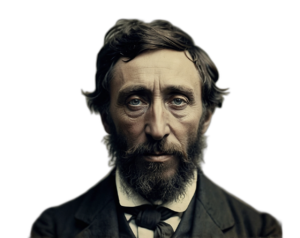Only that day dawns to which we are awake.
Henry David Thoreau
I reside in a state of abiding nondual awareness. This awareness is fully integrated in me and me in it, so while I always see it, I seldom notice it. Prior to my awakening, the dreamstate mirage was so thick and solid that I couldn’t cut it with a knife; now, it’s so thin and transparent that I pass through it with barely a ripple. I might experience a twinge of sadness when Bambi’s mother gets shot or the local team loses the big game or thousands die in a tsunami, but the lights in my theater are on and my disbelief is unsuspended, so I never forget it’s all just a movie. I might perceive pain when I stub my perceived toe on a perceived rock, but I never believe these perceptions represent an underlying reality; the pain factor just adds an element of realism, like 3D glasses or Dolby Stereo.
Log In or Register to Continue
"Everyone must believe in something.
I believe I'll go canoeing."Henry David Thoreau
Henry David Thoreau (1817–1862) was an American writer, philosopher, naturalist, and social critic, best known for his book Walden, a reflection on simple living in natural surroundings. A central figure in the Transcendentalist movement, Thoreau emphasized individual conscience, self-reliance, and the spiritual benefits of solitude and nature. He also wrote the influential essay Civil Disobedience, advocating nonviolent resistance to unjust government, which later inspired leaders like Gandhi and Martin Luther King Jr. Thoreau’s work blends sharp observation, philosophical depth, and moral purpose, making him a foundational voice in American literature and environmental thought.

